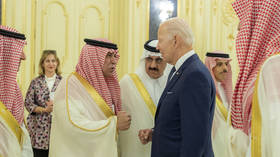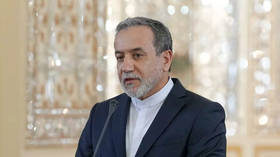White House ‘willing to revisit’ ties with key ally

US President Joe Biden is “re-evaluating” the country’s close relationship with Saudi Arabia following a decision by OPEC+ to cut oil production, national security spokesman John Kirby revealed on Tuesday.
“I think the president’s been very clear that this is a relationship that we need to continue to re-evaluate, that we need to be willing to revisit,” Kirby told CNN in an interview, adding that the president was willing to work with Congress to determine “what that relationship ought to look like going forward.”
The official stressed that time was of the essence, insisting the re-evaluation was not “anything that’s going to have to wait or should wait, quite frankly, for much longer.” Not only are US interests in Ukraine at stake, but its national security interests as a whole are imperiled, he said.
Biden’s apparent desire to reconsider Washington’s partnership with Riyadh is a major shift from just four months ago, when he wanted to reset the relationship to a more friendly tone and discard the harsh rhetoric he’d leveled against the Saudis while on the campaign trail.
However, high-ranking figures within his own party have left him little choice but to take a hard line on the Gulf monarchy. Senate Majority Leader Chuck Schumer condemned the production cut in a tweet on Thursday, promising that “we are looking at all the legislative tools to best deal with this appalling and deeply cynical action, including the NOPEC bill.” The legislation, first introduced in 2000, would allow the US Justice Department to sue countries it accused of manipulating oil prices.
Senate Foreign Relations Committee chair Bob Menendez (D-New Jersey) demanded on Monday that the US “freeze all aspects” of its cooperation with Saudi Arabia, echoing Schumer’s argument that the OPEC+ production cut was the equivalent of underwriting the Russian military operation in Ukraine.
The reduction is expected to push prices above $100 a barrel, potentially forcing US gas prices up 10% — just in time for the midterm elections, in which the Democratic Party is fighting to hold on to its majority in the House of Representatives and its slight edge in the Senate. It also wipes out a slight production increase Saudi Arabia agreed to at Biden's behest in July.













